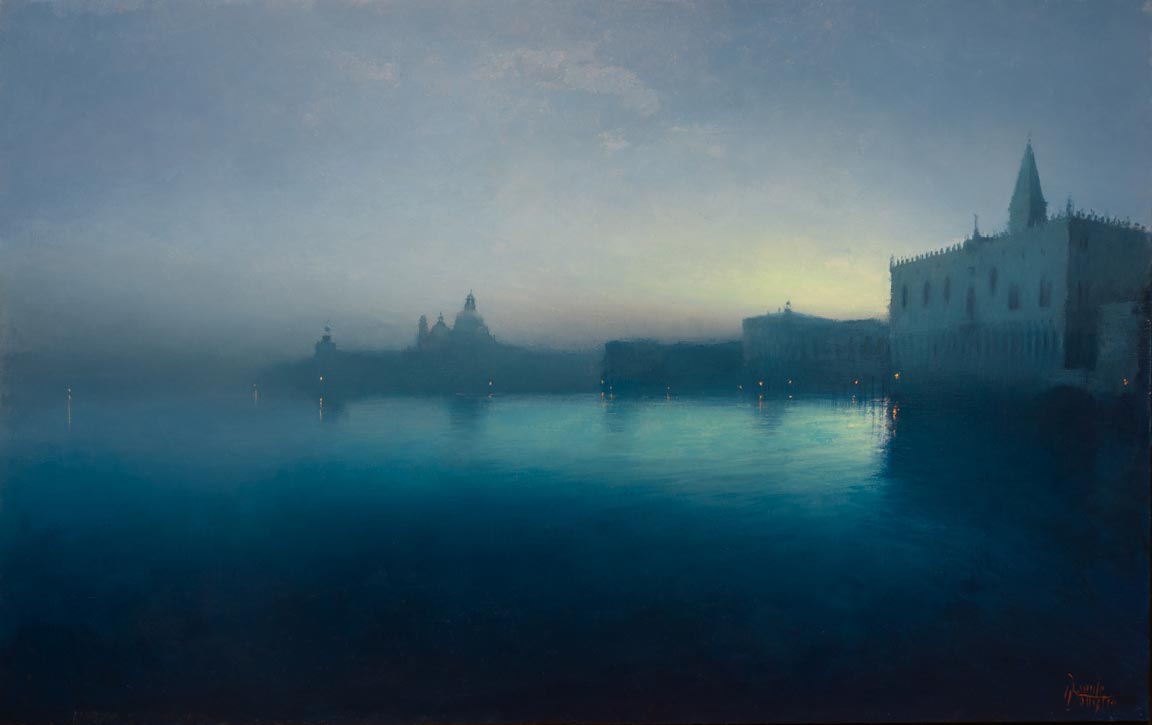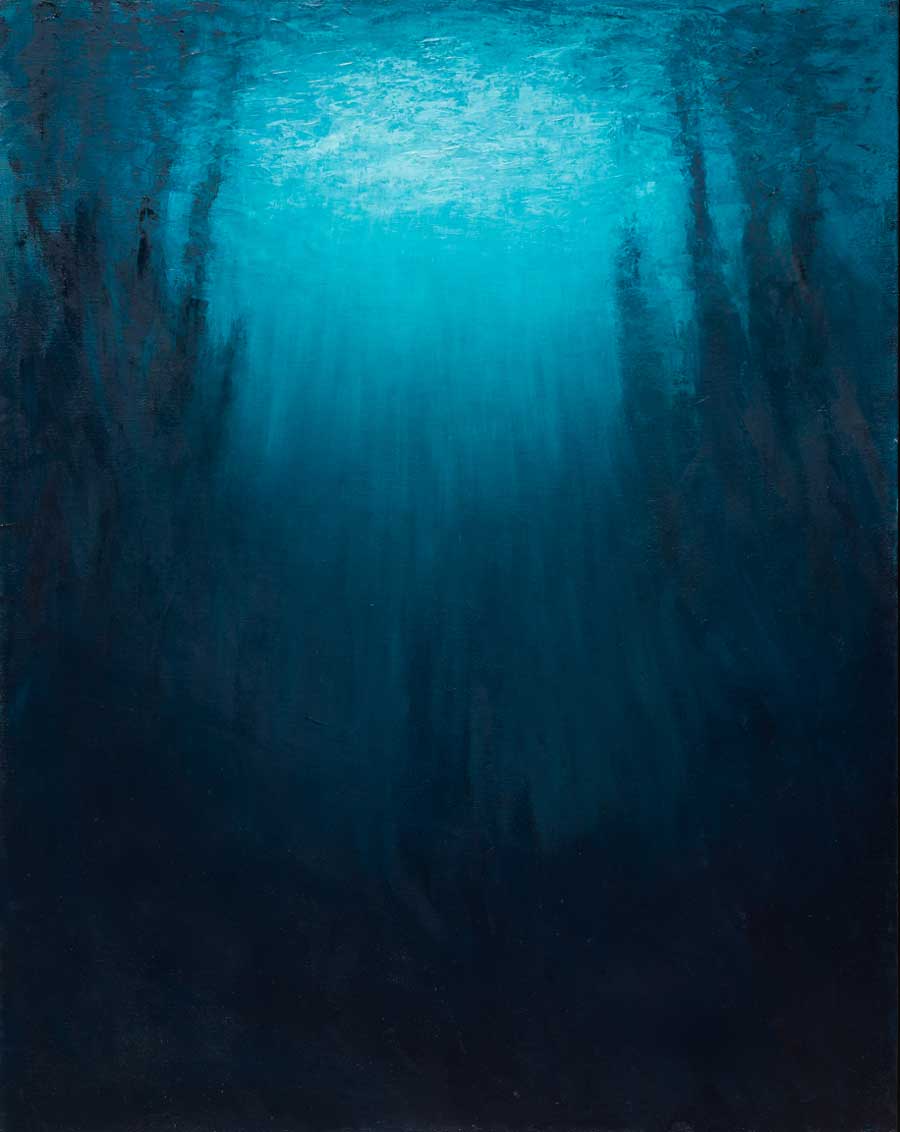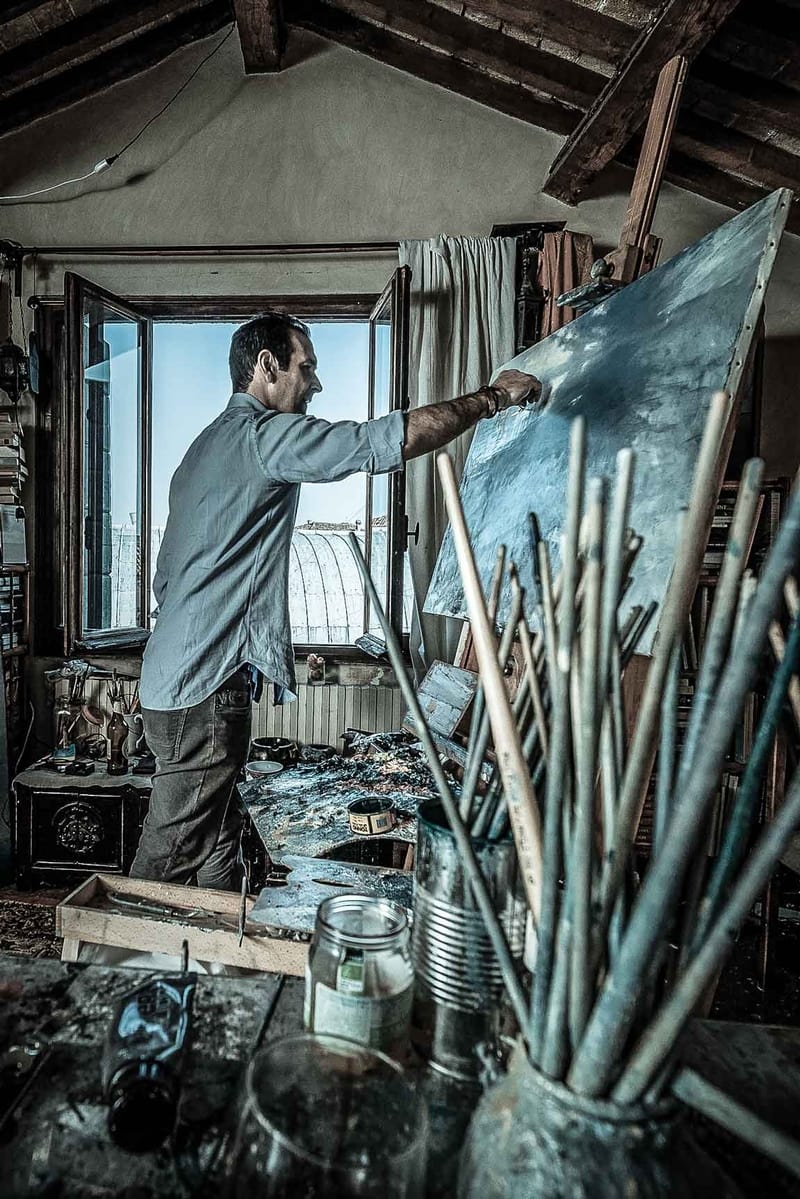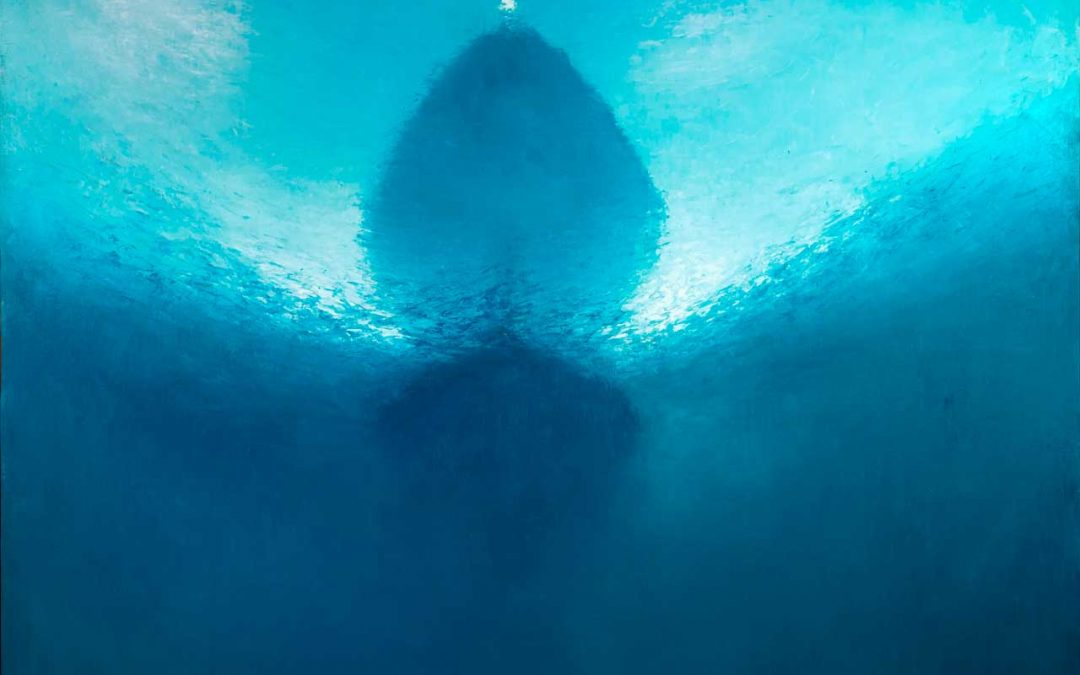“What we know is a drop, what we don’t know is an ocean”
#PhilosophicalWednesday#20
There are some contemporary painters who have a great expressive strength ‐ capable of “feeling” landscape so personally than scenery is not only a source of inspiration, but is the chosen place for self‐ transposal.

Davide Battistin, L’heure bleu, 2021, oil on canvas, cm 120×77 – Courtesy of Linea d’Acqua
Certainly, an emblematic author is Davide Battistin (Venice, 1970), whose representations of Venice are immediately recognizable due to the suffused atmosphere and the captivating depiction of arcane moonlight permeating Venetian lagoon and the city skyline.
Venice panoramas are barely outlined, but seem to vibrate and expand as a whole in the natural environment which “breathes” together with houses, churches and boats like a single organism. In his vistas, Battistin depicts a city which IS its lagoon and whose life depends on its delicate dynamics.

Davide Battistin, Underwater, 2021, oil on canvas, cm 150×119 – Courtesy of Linea d’Acqua
His marine landscapes, painted on large‐size canvasses, are immersions in different shades of blue and project the observer onto twilight moments. The total experience of landscape, if possible, is even more emphasized when the artist’s point of view is underwater. In a way, here the narrative of a sunken world comes up: what is visible is only the keel of a boat, but what is perceivable is the amplification of a moment of passage and suspension. The mutability of time before dawn changes from one minute to the next and is skillfully expressed in the canvas through the use of oil colours where light is treated as an autonomous entity. The progressive rarefaction, obtained with subtle and evanescent brush strokes, is so comforting to reassure like a background light music.

Davide Battistin in his own atelier in Venice – Courtesy of Linea d’Acqua
Battistin’s works convey the miracle of an impossible timeless city which lies in travellers’ and wayfarers’ memory or in the desire of who have never lived in it yet.
An imaginatively unreasonable city which looks at itself in the mirror of its own lagoon and caresses sublime strings.

